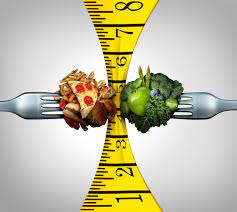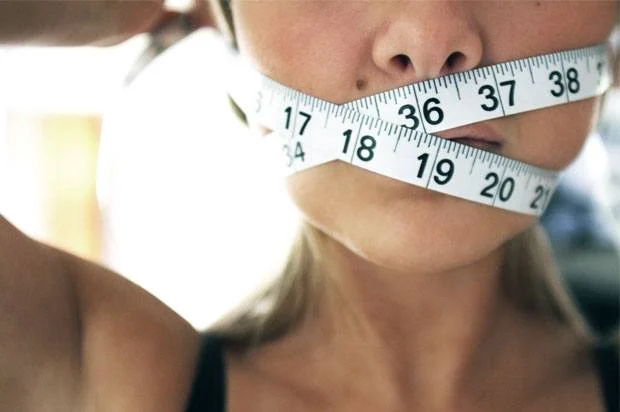Orthorexia nervosa is a little-known eating disorder that is often mistaken for anorexia or bulimia. It is characterized by an obsessive desire to eat healthy foods and can have serious consequences for the individual’s health. If you think you may be suffering from orthorexia, it is important to seek treatment as soon as possible. In this article, we will discuss the signs and symptoms of orthorexia, as well as the various treatment options available.
Contents
Defining Orthorexia
Orthorexia nervosa is a relatively new eating disorder that was first coined in the late 1990s. It is characterized by an obsessive focus on healthy eating. People with orthorexia become fixated on the quality of the food they eat, as well as the nutritional content. They may spend hours researching recipes and ingredients and planning their meals around what they believe to be the perfect balance of nutrients.
The driving force behind orthorexia is often a fear of becoming sick or unhealthy. This can be due to a previous experience with illness, or general anxiety about health and nutrition. People with orthorexia often have a very rigid view of what constitutes “healthy” eating, and they may go to extremes to avoid any food that they believe to be unhealthy.
Oftentimes, people confuse orthorexia with anorexia or bulimia. However, there are some key differences between these disorders. Unlike anorexia, orthorexia is not necessarily driven by a desire to lose weight. And while people with bulimia may also have rigid eating habits, they do not typically fixate on healthy foods to the exclusion of all others.
Signs and Symptoms

There are a number of signs and symptoms that can indicate someone is suffering from orthorexia. If you or someone you know is exhibiting any of the following behaviors, it may be time to seek help:
- Preoccupation with healthy eating: spending excessive amounts of time thinking about food and nutrition; reading books, magazines, and blogs about healthy eating; researching recipes and ingredients; and planning meals around what is considered to be the perfect balance of nutrients.
- Avoidance of certain foods: Eliminating entire food groups or specific types of foods from the diet due to a belief that they are unhealthy. These may include, for example, processed foods, sugar, caffeine, alcohol, gluten, dairy, etc.
- Extreme exercise: Engaging in excessive exercise in order to burn off calories from “unhealthy” foods consumed or to compensate for missed workouts due to illness.
- Social isolation: withdrawing from social activities and hobbies in order to focus on healthy eating habits. This may include skipping family gatherings or avoiding going out with friends if it means having to eat “unhealthy” food.
- Obsessive behavior: fixating on healthy eating to the point where it interferes with work, school, or relationships. This may include, for example, skipping work to go grocery shopping or prepare meals, or refusing to eat food prepared by someone else.
If you are displaying any of these signs and symptoms, it is important to seek help from a qualified mental health professional as soon as possible. Left untreated, orthorexia can lead to serious health problems, both physical and psychological.
Treatment Options
There are a number of different treatment options available for orthorexia. The most important thing is to seek help from a qualified mental health professional who can tailor the treatment to your specific needs. Some common treatment modalities include:
Professional Intervention
Professional help for orthorexia generally falls into one of three categories: psychological therapy, medication, or nutritional counseling. Each person will respond differently to treatment, so it is important to work with a professional who can tailor a plan to the individual’s needs. A psychologist and a nutritionist are the most professional and reliable experts who can assist you. In some cases, a combination of treatments may be recommended.
Therapy

Therapy for eating disorders works to help the individual develop a healthier relationship with food. This may include learning how to eat for their health, without fixating on specific nutrients. Therapy can also help the individual to understand and change their distorted beliefs about food and nutrition. Some of the most common therapy approaches that can treat orthorexia include:
- Cognitive-behavioral therapy (CBT): CBT is a type of therapy that focuses on changing negative thinking patterns and behaviors. It can be effective in treating orthorexia by helping the individual to understand and change their distorted beliefs about food and nutrition.
- Dialectical behavior therapy (DBT): DBT is a type of therapy that focuses on teaching people how to manage their emotions. It can be helpful in treating orthorexia by teaching the individual how to cope with difficult emotions without turning to disordered eating behaviors.
- Family-based therapy (FBT): FBT is a type of therapy that works with the family to help support the individual suffering from an eating disorder. This can be helpful in treating orthorexia by providing support and understanding from loved ones.
- Acceptance and commitment therapy (ACT): ACT is a type of therapy that focuses on acceptance and commitment to change. This can be helpful in treating orthorexia by helping the individual to accept their disorder and commit to changing their relationship with food and nutrition.
- Interpersonal psychotherapy (IPT): IPT is a type of therapy that focuses on relationships and interpersonal interactions. This can be helpful in treating orthorexia by helping the individual to develop healthier relationships with food and nutrition.
Each person will respond differently to treatment, so it is important to work with a professional who can tailor a plan to the individual’s needs. In some cases, a combination of therapies may be recommended.
Medication
In some cases, medication may be recommended to treat underlying conditions such as anxiety or depression. This can be helpful in treating orthorexia by reducing symptoms that may be contributing to the disorder. Although there are no specific medicines for treating disorders, medication can be a valuable tool in managing symptoms. These can include:
- Selective serotonin reuptake inhibitors (SSRIs)
- Serotonin-norepinephrine reuptake inhibitors (SNRIs).
- Tricyclic antidepressants (TCAs)
- Antipsychotics
- Anxiolytics
These work by increasing levels of certain chemicals in the brain, which can help to improve mood and reduce anxiety as well as treat the underlying psychological contributors of orthorexia.
If you decide to undergo medication, it is important to work with a psychiatrist or other mental health professional who can closely monitor your condition and adjust your medication as needed.
Nutritional counseling

As orthorexia is primarily a disorder of nutrition, nutritional counseling can be an important part of treatment. A registered dietitian or other nutritionists can work with the individual to develop a healthy relationship with food and nutrition. This can be helpful in treating orthorexia by helping the individual to understand how to eat for their health, without fixating on specific nutrients.
Nutritionists may also use other food-centric techniques and approaches to help with orthorexia, such as:
- Elimination diets: An elimination diet is a type of diet that eliminates certain foods from the diet for a period of time. This can be helpful in treating orthorexia by helping the individual to identify trigger foods and develop healthy eating habits.
- Food journaling: Food journaling is a process of tracking what you eat, how you feel, and any other thoughts or emotions related to food. This can be helpful in treating orthorexia by providing insight into your relationship with food and nutrition.
- Mindful eating: Mindful eating is the practice of being present and aware while eating. This can be helpful in treating orthorexia by further helping the individual to focus on the experience of eating, without fixating on specific nutrients.
- Dietary supplements: In some cases, dietary supplements may be recommended to help the individual get the nutrients they need. This can be helpful in treating orthorexia by ensuring the individual is getting the nutrients they need.
- Eating disorder support groups: There are many different types of eating disorder support groups available. These can be helpful in treating orthorexia by providing support and understanding from others who are going through similar experiences. These groups can also provide a sense of community and belonging, which can be helpful in recovery.
The most effective and appropriate form of treatment for orthorexia will vary from person to person. It is important to work with a professional who can tailor a treatment plan to the individual’s specific needs and situation.
Hospitalization

In severe cases, hospitalization may be necessary to ensure that the individual is receiving adequate nutrition and to monitor for any medical complications. This is typically a short-term stay, lasting anywhere from a few days to a week or two. Hospitalization can provide a safe environment for the individual to receive treatment and stabilize their condition. During this time, the individual will work with a team of professionals to develop a treatment plan and begin working towards recovery.
This process consists of three main phases:
- Phase one: The individual is admitted to the hospital and stabilized. This may involve receiving IV fluids or nutrition if they are malnourished.
- Phase two: The individual begins working with a treatment team to develop a plan for recovery. This may include meeting with a therapist, dietitian, and doctor on a regular basis.
- Phase three: The individual is discharged from the hospital and begins outpatient treatment. This may involve attending therapy sessions, support groups, and/or nutritional counseling appointments.
This approach ensures that the individual is receiving the care and treatment they need to recover from orthorexia. It also provides a safe and structured environment in which to work on recovery.
Self Help Strategies

There are also many self-help strategies that can be helpful in treating orthorexia. These include:
- Reading books or articles about orthorexia and other eating disorders: This can be helpful in increasing your understanding of the disorder and how to recover.
- Identifying trigger foods: Trigger foods are those that cause an intense preoccupation with food or nutrition. Identifying these foods can also be helpful in treating orthorexia by helping the individual to avoid them.
- Eating regular meals: Eating regular meals can be helpful in treating orthorexia by helping to regulate blood sugar levels and preventing feelings of deprivation.
- Avoiding dieting: Dieting can trigger orthorexic behaviors. Avoiding dieting can be helpful in treating orthorexia by preventing a cycle of restriction and bingeing.
- Keeping a food journal: This can help you to become more aware of your thoughts and feelings around food and nutrition. You can utilize a food journal to track your eating habits, emotions, and thoughts.
- Finding other hobbies and interests: This can help to take your focus off of food and nutrition. It may also help to provide a sense of purpose and meaning.
- Exercise: Exercise has many benefits, including reducing stress and improving mood. Exercise can be helpful in treating orthorexia by helping the individual to cope with difficult emotions and improve their overall well-being.
- Mindfulness-based approaches: These approaches help the individual to focus on the present moment and become more aware of their thoughts and feelings. This can be helpful in treating orthorexia by helping the individual to become more aware of their thoughts as well as feelings about food and nutrition.
By following these self-help strategies, you can begin to take steps towards recovery from orthorexia. These strategies can be used in conjunction with other treatment methods, such as therapy or medication.
There are many different treatment options available for orthorexia. The best approach will vary depending on the individual and their unique needs. However, all treatment approaches should aim to help the individual develop a healthier relationship with food and nutrition. If you or someone you know is struggling with orthorexia, please reach out for help. There is no shame in seeking treatment for an eating disorder, and recovery is possible.
Tips For Finding The Right Professional
As discussed above, there are two kinds of professionals who can help aid in orthorexia treatment: psychologists and nutritionists. Here are some tips for finding the right professional:
- Look for a psychologist or nutritionist who has experience treating eating disorders. This will ensure that they are familiar with the disorder and how to best treat it.
- Ask about their treatment approach. Be sure to ask about their experience with orthorexia specifically, as well as other eating disorders.
- Get a referral from a trusted source. This could be your doctor, a friend, or a family member.
- Check with your insurance provider to see if they cover psychological or nutritional services.
- It’s also important to find a professional who you feel comfortable with. This is because you will be sharing sensitive information with them.
By following these tips, you can be sure that you are getting the help you need from a qualified professional. Orthorexia is a serious disorder that requires treatment. However, with the right help, recovery is possible.
There are many different treatment options available for orthorexia. The best approach will vary depending on the individual and their unique needs. However, all treatment approaches should aim to help the individual develop a healthier relationship with food and nutrition.
Conclusion
Orthorexia is a complex disorder that requires comprehensive treatment. Although there is no one-size-fits-all approach to treating orthorexia, there are many effective treatments available. If you or someone you know is suffering from orthorexia, seek professional assistance.
Please remember that recovery is possible. With the right treatment, individuals with orthorexia can learn to develop a healthier relationship with food and nutrition. If you are struggling, please reach out for help. You can also contact Mantra Care for accessing the best quality psychological and nutritional assistance. We have a team of experts offering affordable, effective, non-judgmental, and confidential treatment for any issues you might be facing. Reach out to us to book a session or also download our free Android or iOS app for more information!


